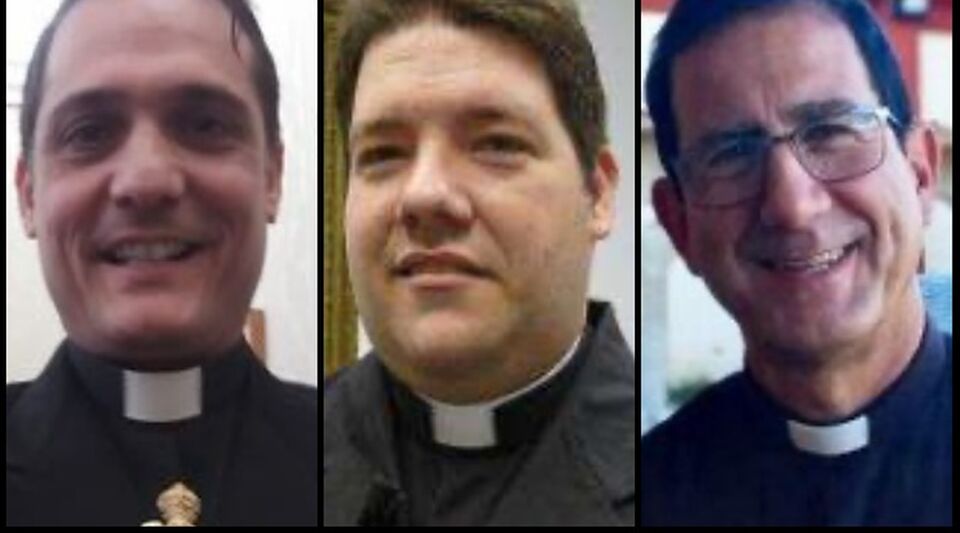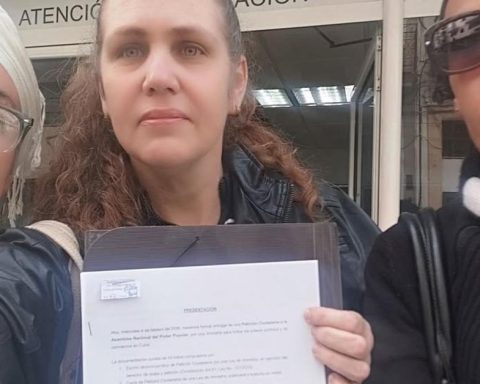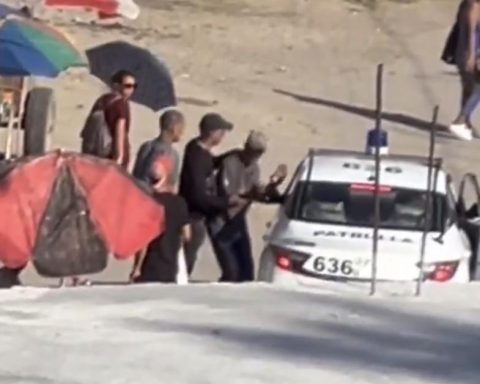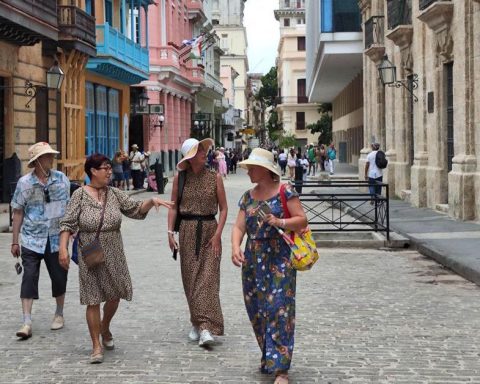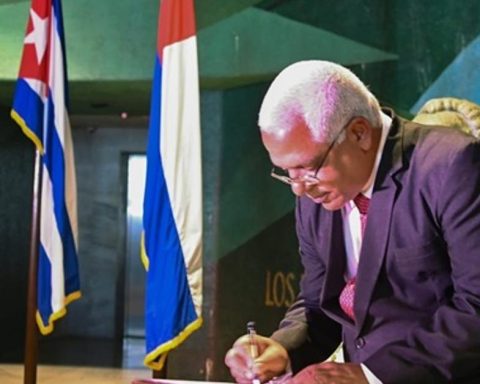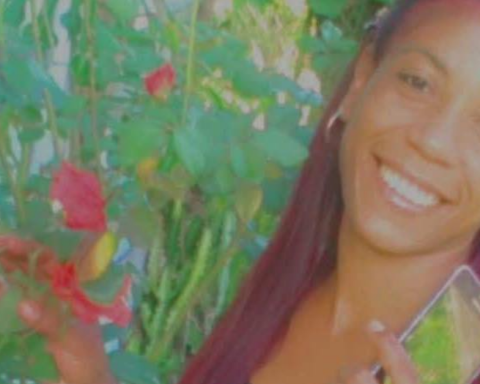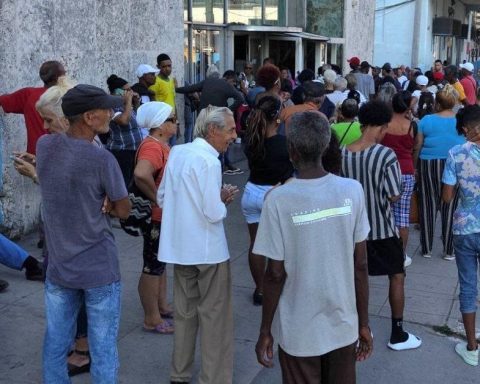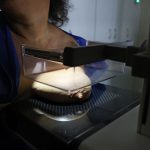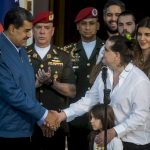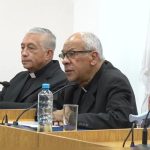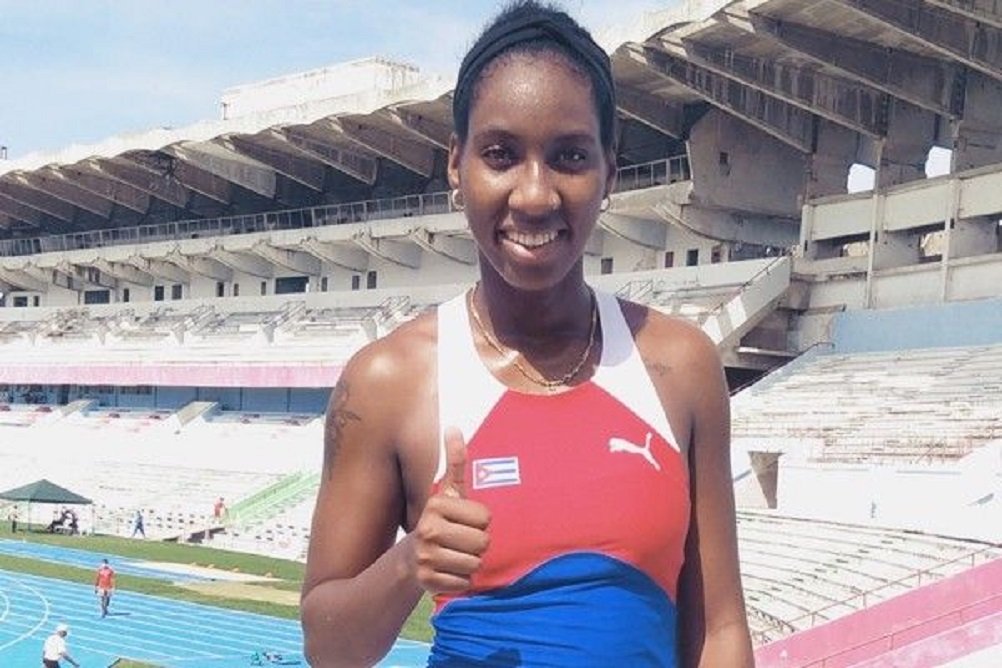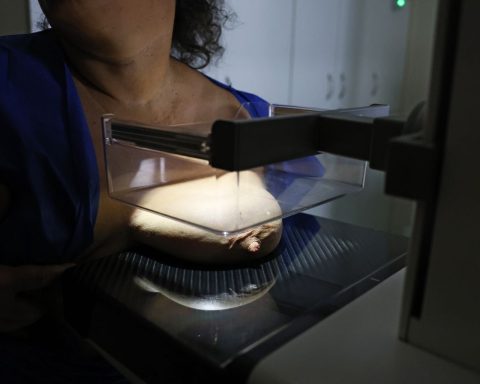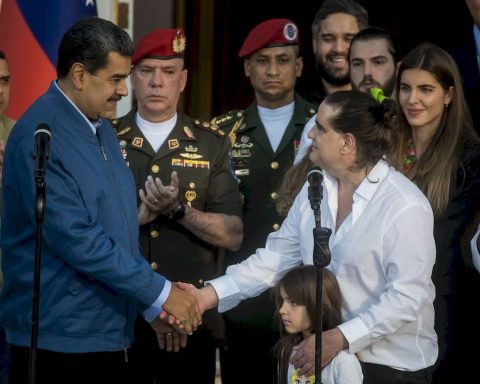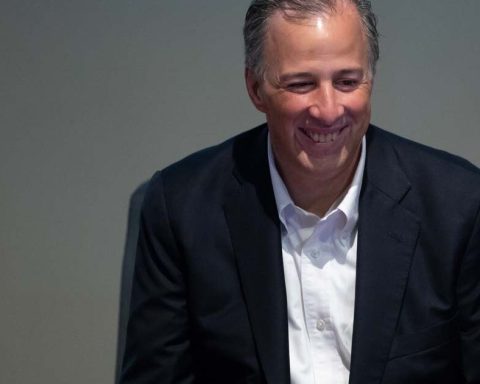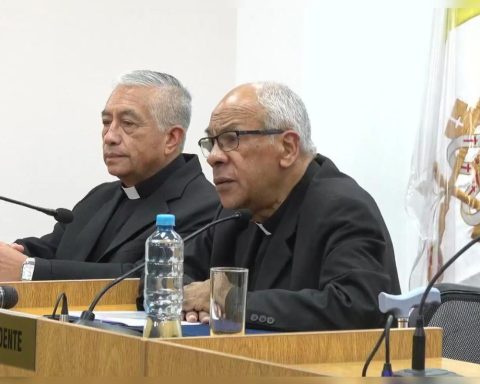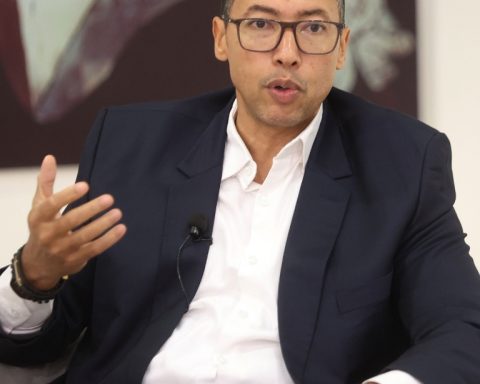The oldest man in the dungeon wears a clerical shirt and a bandage on his head. Four stitches have been sewn over the wound. In the midst of the tumult of 11J in Camagüey, between the sweat and the cries for freedom, a hitman unloaded a bat on his forehead. With the same impetus, the aggressor returned to his group: it is not for nothing that they call this stampede of enraged proletarians rapid response brigades.
Dizzy, hungry –he had not been able to eat lunch–, with a bloody head, the man called for help. Police, who take her reputation as a saint and a Samaritan seriously, escorted him to the hospital. There they patched up the wound as best they could and took him, of course, to prison.
That night, Cuba understood that the government was willing to go where it had not dared before in order to punish the 11J protesters: attack and imprison a priest. It was not until the following day – and with much entreaty from the archbishop – that they released Beaver Alvarez.
“That day everything was a party, all that was missing was the drum,” the priest tells 14ymedio , without rancor, a year after the protests. “There were many young people and the elderly came out of their houses astonished, to see that, as if to say: ‘Is it true?'”
“There were many young people and the elderly came out of their houses astonished, to see that, as if to say: ‘Is it true?'”
When it all started, Father Castor was at the home of actress Iris Mariño. Seeing the vehemence with which that woman accepted the news, he fell to his knees and begged for a little enlightenment. He had to get out.
He walked three hours with the young people until the encounter with the military. “I told them no, that they weren’t there to hit the people. They had to let the people speak.” The police, he assures, were not as aggressive as the furious “cordon” of civilians, who were already wielding sticks to carry out Díaz-Canel’s “combat order.”
In the dungeon, the boys – of all colors, religions and ages – asked him if God had crossed Cuba off the map. “I told them that the opposite was true, and we began to pray together and talk,” adds the priest. “I was able to understand those young men, what they were risking. And I knew from their expressions that they would not stop risking.”
From the Special Period, the Cuban began an unstoppable “path of liberation”, reflects the priest. However, the most urgent challenge is “to believe in politics, to believe that a human association can be made with certain rules. We cannot think only of the family, which is perhaps the group to which Cubans advance in association, but also in the country.
For this priest, 11J was a “bright day”, which awakened the old happiness of Cubans. However, some hope gained in the protests “was frustrated by what happened around 15N”.
The Police were not as aggressive as the “cordon” of civilians, who were already wielding sticks to carry out Díaz-Canel’s “combat order”
“We cannot despair,” he adds, “because the path through violence may be quick, but less durable. The peaceful path is slower, but having the conviction of the hearts and the agreement of men and the wills of all is more successful, more harmonious”.
In Havana, another priest, Jorge Luis Pérez Soto, was also moved to walk with the people during 11J. “I remember that afternoon I left the streets for an hour to go celebrate mass. It was a mystical moment, because spiritually accompanying this people is also urgent.”
The social networks, the growing burden and the generational change are transforming the Cuban reality, he thinks. In addition to light, 11J brought a lot of pain, both for those who “did not know how to peacefully claim their rights”, and for those who were supposed to be “guarantors of citizen order” and ended up calling for “brother against brother” violence.
Several photographs show the priest standing at the entrance to the police stations in Havana, demanding proof of life from the disappeared. Many of the prisoners were Catholic lay people, people of faith and culture, and minors, of whom the establishment in which they were detained was not even known.
It was decisive then, recalls Father Jorge Luis, that the Conference of Religious Men and Women of Cuba organized an accompaniment service for prisoners and their families. In a year of work, the Conference has provided numerous legal, psychological and counseling resources to families who have felt helpless in the face of the harsh sentences of 11J. This service has put the Catholic Church, regularly monitored at all levels, in the sights of State Security.
However, “the repression has been very harsh. Certainly international and media pressure have managed to reduce some sentences, but even so, they continue to be unjust and morally unacceptable for the most part.”
Father Jorge Luis agrees with his colleague from Camagüey that “the Cuban people must learn to listen and welcome each other. Individual agendas must be postponed by common agendas. Violence cannot be viewed in any way as a way to solve anything. Education civic responsibility of the people is urgent”.
11J surprised Albert Reyes outside of Cuba, but this priest would have liked to “live the protests in the first person”. It is no secret that the G2 has a particular viciousness towards him and that his surveillance file must be extensive and thorough. Despite this – and many other misunderstandings, even within the ecclesial environment – Father Alberto is a voice of resistance and radicalism.
“From a distance, I experienced 11J with a mixture of emotions, with joy and hope that the demonstrations would open a path of definitive change,” he tells 14ymedio . Then came the “profound sadness”, “concern and anger at the repression that was unleashed, and at the opportunity that the government was once again missing to start a dialogue with civil society that would lead to change.”
“We are a people that has learned to defend itself as best it can and that goes out to parade and applauds with energy while preparing its definitive emigration from the country”
Although he does not publicly acknowledge it, the power leadership is also experiencing “a situation of continuous wear and tear”. According to the priest, this political system “has more than demonstrated its inability to build a society that is not only prosperous, but also capable of responding to the most basic aspirations of human beings.”
“We are a tired and worn-out people”, he continues, “we are a people whose life is running out in the struggle for survival; we are a people who have learned to defend themselves as best they can and who go out to parade and applaud energetically while preparing their definitive emigration from the country. We are a people submerged in misery and precariousness where it becomes increasingly difficult to cultivate the values of the spirit. And we are a people who no longer believe in the empty promises that their rulers insist on repeating.”
A burning issue around 11J has been the attitude of the Conference of Catholic Bishops of Cuba, accused of weakness in the face of government pressure. Father Jorge Luis, however, assures that “he he bishops have interceded a lot, from silence, to help the detainees; They have also spoken in various messages. His performance has been discreet, since e anonymity, but they have been present”.
“In my case,” Father Castor agrees, “my bishop was there both days to get me out of prison,” adding that “many of our laity were also arrested. Many people have expressed approval of our attitude in confronting the authorities in favor of justice, respect, freedom of expression”.
In these three priests coexists a critical spirit and civic roots that they share with many priests and nuns, such as Rolando Montes de Oca or the superior of the Daughters of Charity in Cuba, Nadoska Almeida.
“It is true that not all the pastors have been involved,” recognizes Father Castor, “but you also have to understand the charisms. I believe that there has been a light within the pastors of the Church towards the people. And the people know that You can always find support there.
________________________
Collaborate with our work:
The team of 14ymedio is committed to doing serious journalism that reflects the reality of deep Cuba. Thank you for joining us on this long road. We invite you to continue supporting us, but this time becoming a member of our newspaper. Together we can continue transforming journalism in Cuba.
